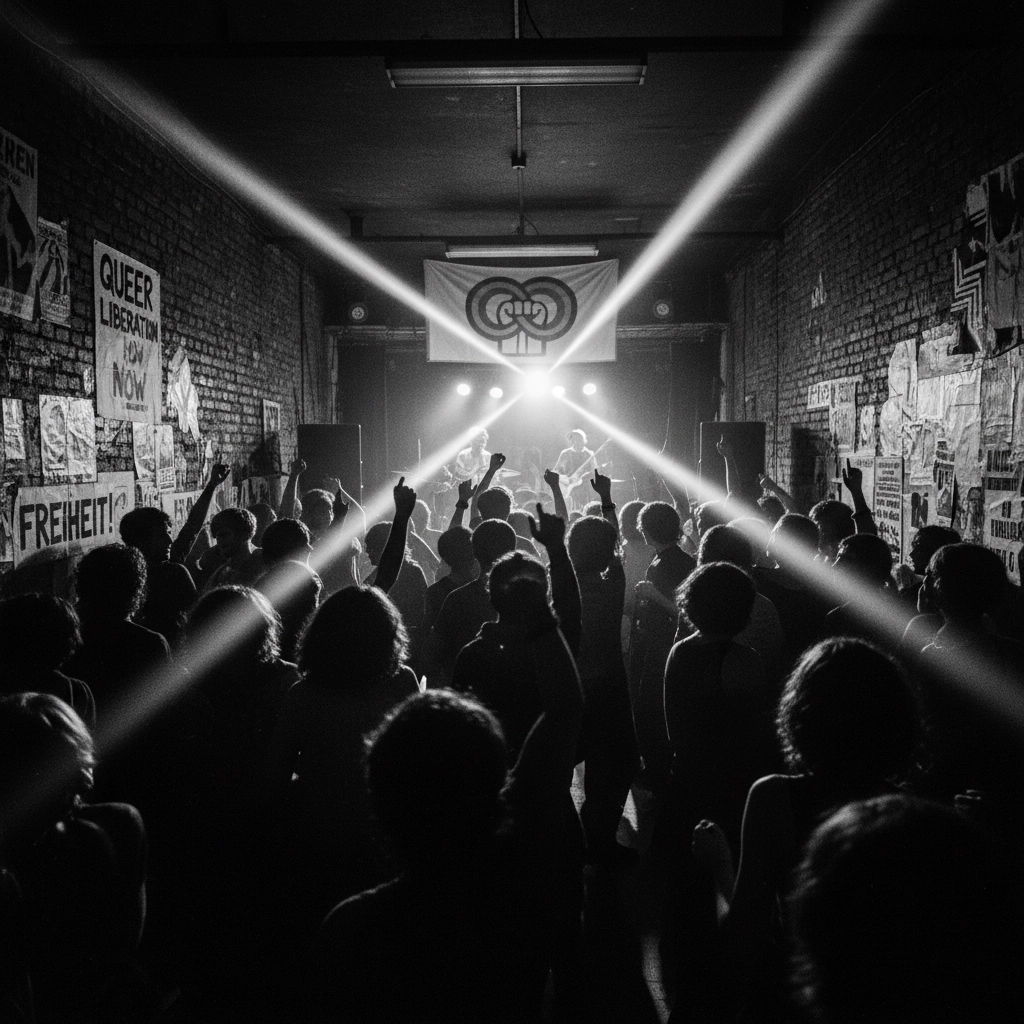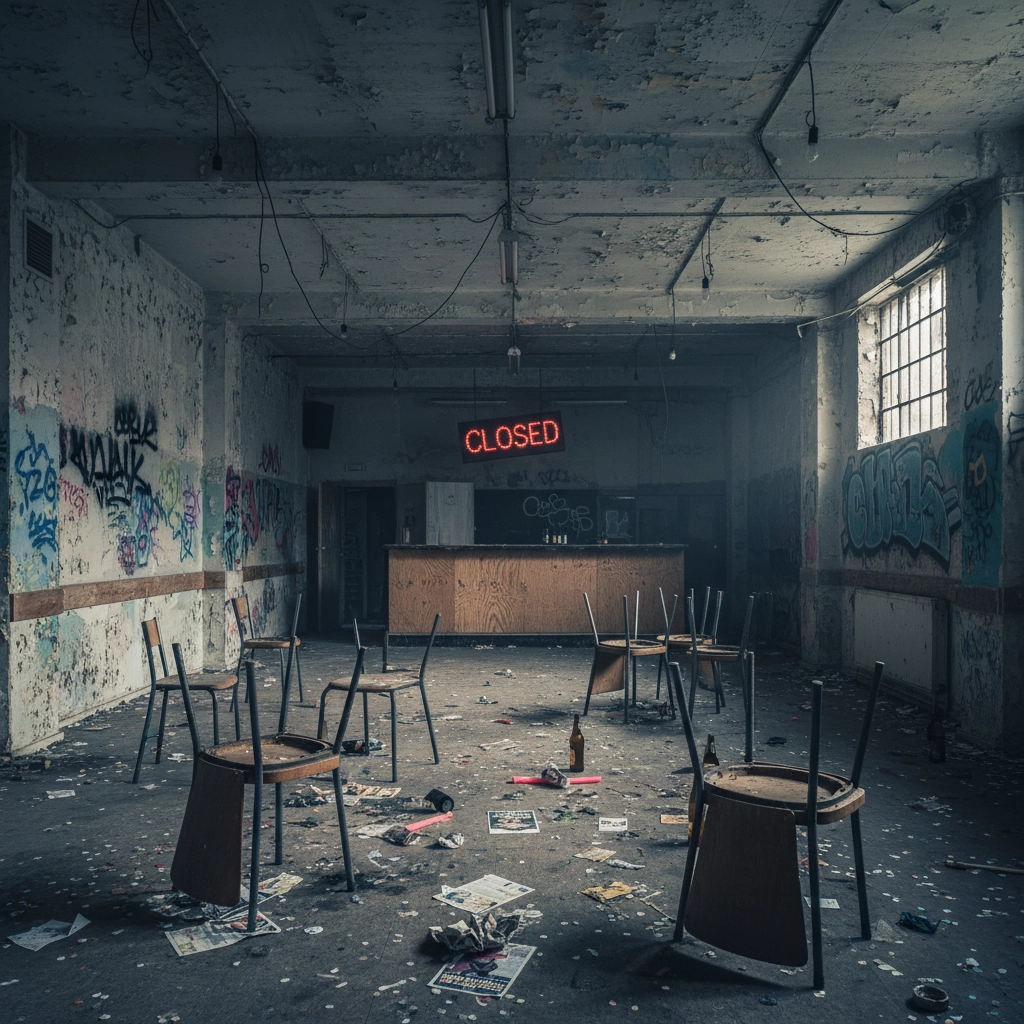Berlin's Legendary Queer Club SchwuZ Is Fighting for Survival – And It's Not Just About the Money
- Amanda Sandström Beijer
- Nov 16, 2025
- 5 min read
The fight is over. After 48 years of defying the odds, hosting legendary parties, and serving as Berlin's queer heartbeat, SchwuZ closed its doors forever in early November 2025. The closure of Germany's oldest and largest LGBTQ+ club isn't just another casualty of Berlin's brutal nightlife economics: it's the end of an era that shaped an entire city's identity.

But here's the thing about SchwuZ's demise: it was never really about the money. Sure, skyrocketing rents and electricity bills delivered the final blow, but this legendary venue died from something far more complex: a perfect storm of cultural shifts, generational divides, and the slow erosion of spaces that once felt essential to queer life.
More Than Just a Club: The Birth of Berlin's Queer Revolution

When SchwuZ opened its doors on June 26, 1977, it wasn't just launching a nightclub: it was igniting a movement. Founded as a space for queer political activism, the venue quickly became ground zero for Berlin's LGBTQ+ renaissance. This wasn't some glossy WeHo-style establishment; SchwuZ was raw, political, and unapologetically radical.
The club's impact extended far beyond Saturday night dance floors. SchwuZ birthed Siegessäule, Berlin's influential city magazine, opened Prinz Eisenherz bookstore, established crucial gay counseling services, and most importantly, organized Berlin's first Christopher Street Day parade in 1979. Every Pride march that snakes through Berlin today carries DNA from those early SchwuZ activists who dared to make queer visibility unavoidable.
"SchwuZ was never just entertainment," explains longtime patron Marc K., who witnessed three decades of the club's evolution. "It was where we found family when our biological families rejected us. It was where activism happened between sets, where relationships formed over cheap drinks and political manifestos."
The Perfect Storm: When Economics Met Apathy
The Club Commission, Berlin's nightlife advocacy organization, has been sounding alarm bells about venue closures for years, but SchwuZ's bankruptcy filing in August 2025 still shocked the community. The club's Instagram announcement was brutally honest: "SchwuZ has filed for insolvency, but we don't want to give up."
But giving up became inevitable when facing the economic realities crushing Berlin's alternative scene. Rent increases, electricity costs that tripled post-pandemic, and inflation that made every beer pour a calculated loss created an impossible situation. For a venue that historically relied on volunteer labor and community goodwill, these mounting pressures proved insurmountable.
The financial crisis hit harder because SchwuZ operated differently than commercial clubs. While places like Watergate could charge premium entry fees and sell overpriced bottles, SchwuZ maintained accessible pricing for a community that often couldn't afford Berlin's increasingly expensive nightlife. That ethos: keeping the doors open for everyone: ultimately contributed to its downfall.
Generation Swipe: How Dating Apps Killed the Dance Floor

Here's where the story gets complicated: younger queer people simply don't need SchwuZ the way previous generations did. Generation Z drinks less, clubs less frequently, and increasingly relies on dating apps for connection rather than sweaty dance floors and shared cigarettes in smoking areas.
"We used to club Friday and Saturday every week," says longtime SchwuZ regular Diana M. "Now I see my younger friends maybe once a month, if that. They've got Grindr, Tinder, Instagram: they don't need to hunt for community in dark rooms anymore."
This shift represents both progress and loss. Apps provide safer ways to explore sexuality and find community, especially for people in smaller cities or conservative environments. But they can't replicate the magic of accidental encounters, the political conversations that happened over bathroom stall graffiti, or the collective euphoria of hundreds of people losing themselves to the same beat.
The aging of SchwuZ's core clientele became impossible to ignore. Forty-somethings and fifty-somethings remained loyal, but their monthly visits couldn't sustain operations as younger crowds migrated to Instagram parties, private events, and digital connections that didn't require leaving their apartments.
Community Resistance: "We'll Stay If You Stay"
The closure didn't happen without a fight. SchwuZ launched desperate fundraising campaigns, including the poignant "We'll Stay If You Stay" initiative that asked the community to recommit to regular attendance. Local activists, including prominent voices like journalist Manuela Kay, rallied support through social media and traditional press coverage.
The Queer Foundation emerged partially in response to venues like SchwuZ struggling, offering subscription cards and funding for intersectional parties. Events like Adira attempted to bridge generational gaps by combining SchwuZ's political legacy with contemporary queer aesthetics.
But community organizing couldn't overcome fundamental economic realities. Even packed weekend events couldn't generate enough revenue to offset weeknight losses and mounting operational costs. The volunteer model that sustained SchwuZ for decades became unsustainable in Berlin's current economic climate.
Clubsterben: Berlin's Cultural Apocalypse

SchwuZ's closure epitomizes Berlin's broader "Clubsterben" (club death) crisis, which threatens nearly half the city's nightlife establishments. Legendary venues like Watergate and Renate have similarly closed or face imminent shutdown, while surviving clubs resort to crowdfunding just to pay basic expenses.
This isn't simply about entertainment venues disappearing: it's about losing institutions that drove cultural innovation and provided essential spaces for marginalized communities.
Berlin's global reputation as a haven for artistic experimentation, sexual freedom, and radical politics was built largely on spaces like SchwuZ that offered refuge from mainstream society.
The ripple effects extend beyond nightlife. When queer venues close, entire support networks collapse. SchwuZ hosted safer sex workshops, political meetings, community support groups, and cultural events that happened nowhere else. Its closure creates a vacuum that online communities and commercial establishments can't fill.
What Dies With SchwuZ
The loss of SchwuZ represents something deeper than nightclub economics: it's the erosion of physical spaces where counter-culture could flourish. In an increasingly digital world, places where people could exist completely authentically, without algorithmic filtering or corporate oversight, become precious and irreplaceable.
Berlin's identity as Europe's queer capital was forged in spaces like SchwuZ, where activism and hedonism intertwined, where political resistance looked like dancing until sunrise, where marginalized people found not just acceptance but celebration. Without these spaces, Berlin becomes just another expensive city with good public transportation and mediocre coffee.
The closure of SchwuZ marks the end of an era when nightlife could be genuinely transformative rather than merely transactional. As Berlin's rents rise and its radical edge dulls, we're witnessing the slow death of the city that once promised unlimited freedom to anyone brave enough to claim it.
For 48 years, SchwuZ proved that clubs could be more than businesses: they could be movements, families, sanctuaries, and revolutions all rolled into one sweaty, magnificent package. Now that it's gone, Berlin feels a little less like the city that changed the world, and a little more like everywhere else.





